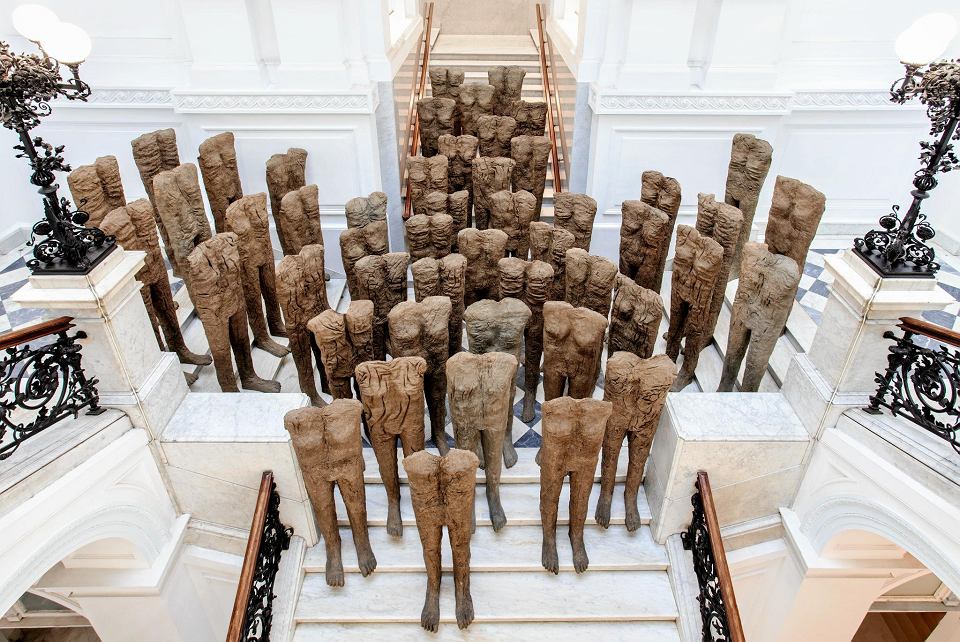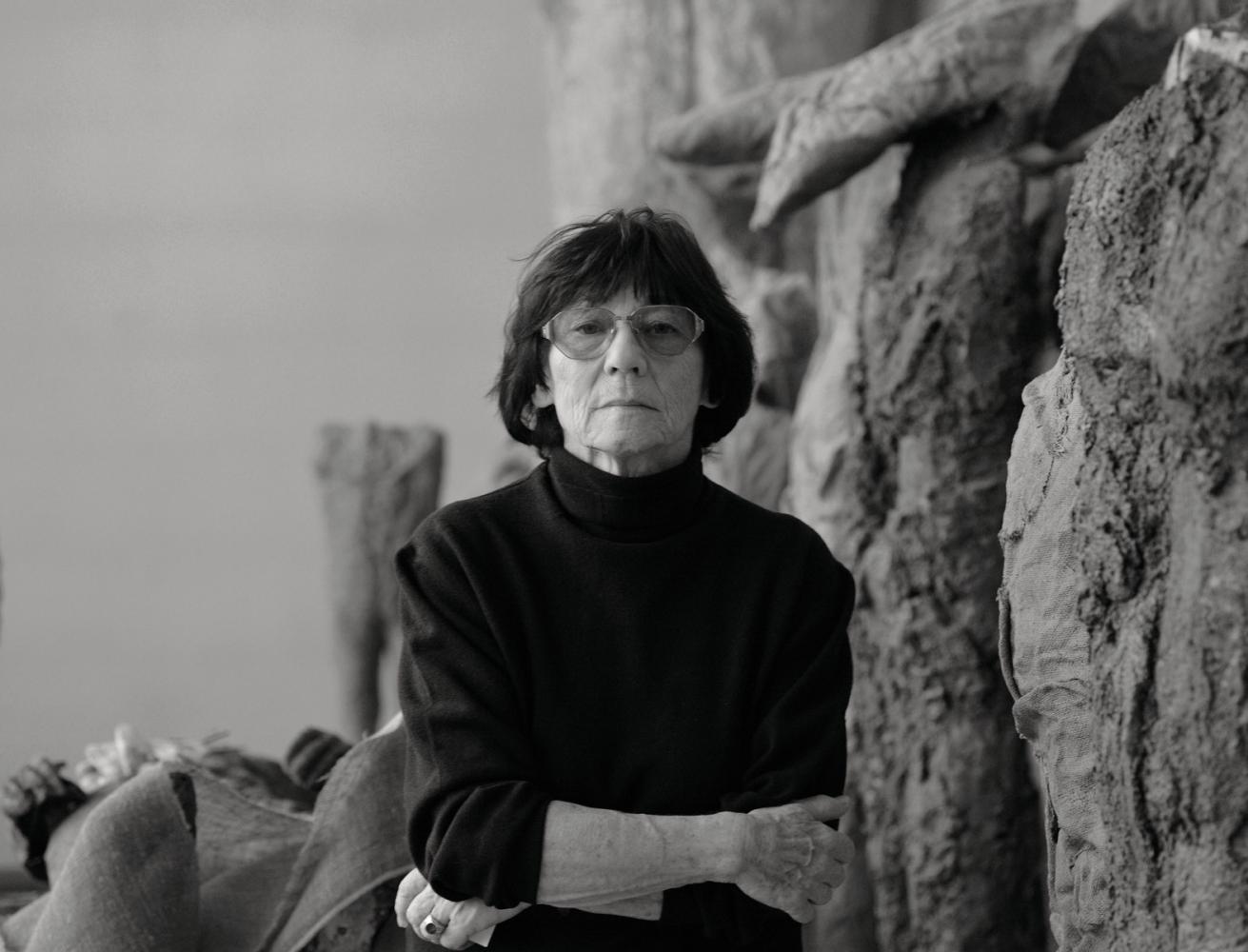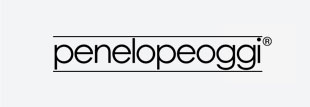In January 2021, the University of Arts in Poznań was named after Magdalena Abakanowicz. On this occasion, the National Museum in Poznań hosted the exhibition “We are fibrous structures”, focusing on the notion of fibre, whose infinite interpretative potential the artist was the first to discover and which had previously been understood in a purely utilitarian sense. For Abakanowicz, the thread was the basic component of the organic world – the building material of all living organisms, plants, animals and the human body.
Magdalena Abakanowicz's works have been exhibited at numerous collective exhibitions all over the world. Her works can be found in the collections of the world's most important galleries and institutions, including: Centre Georges Pompidou in Paris, Kyoto National Museum of Modern Art, MoMA in New York and many others.
In the early 1960s, the artist created the first series of Abakans – large spatial objects made in the weaving technique, for which she was awarded a gold medal at the São Paulo Biennial in 1965. From the very beginning, Abakanowicz undermined the traditional thinking about the utilitarian role of fabric, previously considered a craft. By exhibiting her works at the Lausanne Tapestry Biennial in 1962, she significantly influenced the development of artistic fabric around the world. In her pedagogical work at the Poznań University of Arts, the artist revolutionized the existing educational programme by establishing weaving as an autonomous artistic discipline. She created opportunities for all young art adepts to experiment with fabric and handle textiles in unusual ways.

Magdalena Abakanowicz is an intermedia artist, whose work defies any attempts at categorization. For her, the weaving workshop was a space where she subordinated matter to visions born in her imagination. Almost from the very beginning, her ideas differed significantly from what the art of weaving in the 1950s and 1960s represented.
Her works, which could not be classified as either fabric or sculpture, were somewhat of a precedent in the modern art. Properly formed, monumental sheets held at the top, at one point, were allowed to flow freely downwards. These spatial forms, called Abakans after the artist, almost completely changed the existing understanding of the plastic possibilities of fabrics and broke with the previously established genre divisions, thus opening up space for creative exploration. In an extremely deliberate way, Abakanowicz freed the fabric from a strictly decorative and utilitarian function, from the tradition of wall and surface application.

The artist's holistic approach to the medium of fabric, her non-standard colour thinking focused on the organic dyeing of fibre, building a relationship between a textile object and its environment, as well as her highly sensuous, tactile thinking about fabric proved not only pioneering for the artist's contemporaries, but also foretold the current trends associated with the focus on sensory perception and the senses.
The artist focused her full attention on the form of the fabric, its haptic qualities, such as weave, colour or even sculptural structure. To create her fabrics, she used fibres of various fluffiness, stiffness, and colour, paying attention to the differences between the blackness of matte wool and that of shiny silk, or the whiteness of hemp and that of raw sheep fleece. At the same time, she did not limit herself to natural materials, using elements that had not previously been classified as fabrics, such as ropes, sisal fibres, tree roots or horsehair. In a characteristic way, Abakanowicz incorporated internal tensions, tangled thoughts and feelings of man in the post-industrial reality into her compositions.

Magdalena Abakanowicz is certainly the most recognizable Polish female artist working with fabrics. She owed her international success to this medium, even though she later decided to shift her interests towards sculpture, which is more commonly associated with “high art”.

Magdalena Abakanowicz is certainly the most recognizable Polish female artist working with fabrics. She owed her international success to this medium, even though she later decided to shift her interests towards sculpture, which is more commonly associated with “high art”.







